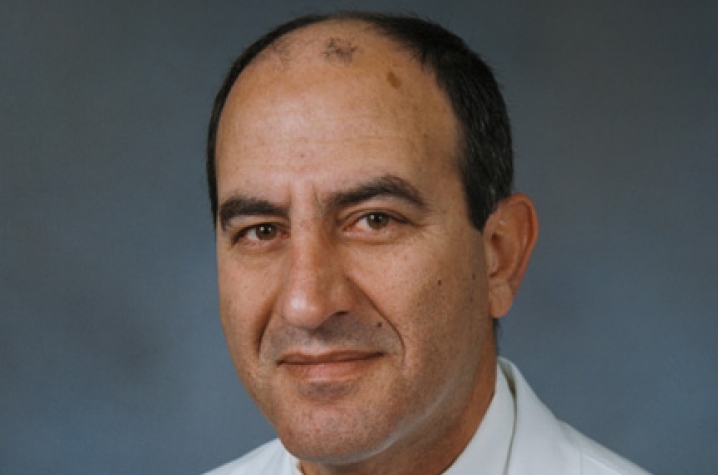Program Linked to Drop in Repeat Teen Pregnancy

LEXINGTON, Ky. (Dec. 10, 2009) − Repeat teen pregnancy is markedly lower among young mothers in a special parenting program at the University of Kentucky when compared to statewide data, a new study shows.
Of 1,386 teen mothers who participated in UK's Young Parents Program, less than 1 percent had a repeat pregnancy during the three-year study period, compared to 18.7 percent of teen mothers statewide, the study found.
The Young Parents Program, which has operated for nearly 30 years, employs a clinical, comprehensive, multidisciplinary approach to teen mothers and their children. Expectant mothers 19 and younger can participate in the program from pregnancy through the child’s fifth birthday. Teens are referred to the program by the university's obstetrics-gynecology department and the local health department.
Enrollees are provided with comprehensive prenatal care, which is tailored to each individual’s needs. After birthing, well-child care is provided at standard intervals. Mothers are also seen at those visits regarding contraception and any other medical or mental health issues.
The recent study was led by Dr. Hatim Omar, professor of pediatrics and obstetrics/gynecology, UK College of Medicine, and chief of adolescent medicine and of the Young Parent Program at Kentucky Children's Hospital.
A retrospective review of clinic data involving repeat teen pregnancy was completed for patients attending the Young Parents Program. Because the program is a clinical health service and was not originally designed as a research endeavor, no control group was available for comparison. However, state statistics on repeat teen pregnancy are available and were used as comparison data in the results.
"The Young Parents Program is a clinical intervention that has not lent itself to a comparison group for study," Omar said. "Therefore, we must extrapolate from the available literature and our current experience to continue to reduce teen pregnancy rates."
A total of 1,386 teens, who were between the ages of 11 and 19 at the time of first pregnancy and who participated in the program for at least three years from 1999 to 2003, were included in the study. All 1,386 teens were seen throughout the three-year period; there was no attrition. Age at first pregnancy varied: 22.6 percent were under 15 years, 36.0 percent were 15-17 years; 41.4 percent were 18-19.
Following the first pregnancy, 84 percent of teens in the program chose Norplant (DMPA) as their contraceptive, while 13 percent used oral contraceptives or the patch. The remaining 3 percent used non-hormonal contraception or abstinence.
Repeat pregnancy was diagnosed in the clinic, and these data were recorded for three years after the birth of the first baby. This reporting period is longer than the average of two years used for national reporting. Of 1,386 teen mothers, only 11 (0.79 percent) had repeat pregnancies during the three-year period. This stands in sharp contrast to statewide statistics, which show repeat pregnancy in mothers under age 20 at 18.7 percent.
Additionally, contraceptive choice appeared related to repeat pregnancy. Of the 11 young women with repeat pregnancies, seven used condoms only, two used oral contraceptives and two did not use any contraception. No repeat pregnancies were reported for the young women who used DMPA.
While teens participating in the program are offered choices regarding birth control, long-acting contraceptives are encouraged. Teens with financial need are provided free contraceptives, making compliance more successful.
Omar says the program embodies several important characteristics that make it an effective intervention.
"The Young Parents Program provides individualized care with highly trained staff, teen education, social support, affordability and necessary medical care for both the teen and her baby," Omar said. "These have contributed to a reduction in teen pregnancy in our population and, ultimately, have led to positive outcomes for these young teen mothers from educational, social and medical perspectives."
The study, "Significant Reduction of Repeat Teen Pregnancy in a Comprehensive Young Parent Program," has been published in the Journal of Pediatric and Adolescent Gynecology.
The study's authors are Omar; Dr. Kimberly K. McClanahan, a former associate professor of pediatrics, UK College of Medicine, and a psychologist in adolescent medicine, Kentucky Children's Hospital; and Amy Fowler, a UK undergraduate student at the time of the study.




